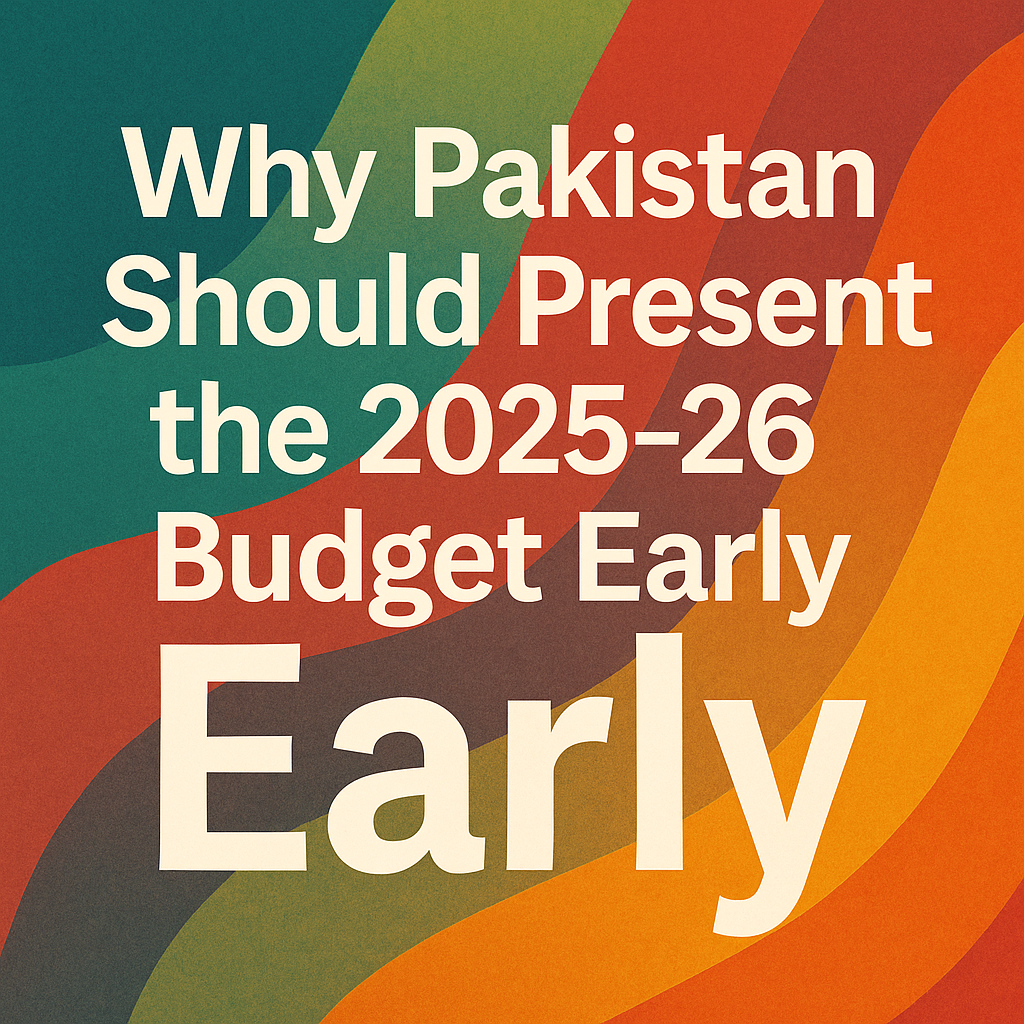
Pakistan’s economy stands at a critical juncture, grappling with persistent inflation, external debt pressures, and the urgent need for structural reforms to stabilize growth. Against this backdrop, the timing of the federal budget’s presentation—typically in June, just before the fiscal year begins in July—has often been a subject of debate. Advancing the presentation of the 2025-26 budget to an earlier date, ideally by March or April 2025, could serve as a strategic lever to address systemic inefficiencies, reinforce macroeconomic stability, and signal Pakistan’s commitment to disciplined governance. This approach would align with global best practices while offering tangible benefits across political, economic, and administrative domains.
One of the most compelling arguments for an early budget lies in its potential to enhance fiscal planning. Under the current timeline, the compressed window between budget approval and implementation leaves limited room for parliamentary scrutiny, stakeholder consultation, or course corrections. By presenting the budget months in advance, policymakers would gain critical time to engage in rigorous debate, incorporate feedback from provincial governments, and align allocations with national priorities such as energy, agriculture, and social safety nets. This extended deliberation period could reduce reliance on supplementary grants and ad-hoc expenditures, which have historically distorted fiscal discipline. Countries like India and the United Kingdom, which present their budgets in February and March respectively, demonstrate how early timelines foster accountability and precision in resource allocation. Pakistan, with its complex fiscal challenges, could similarly benefit from a structured, unhurried process that minimizes last-minute populist measures and ensures coherence with multi-year development frameworks.
From an economic perspective, an early budget would strengthen investor confidence—a vital ingredient for Pakistan’s recovery. Financial markets and foreign investors prioritize predictability, and delays or uncertainties in fiscal policy often lead to capital flight or hesitancy. By finalizing the budget ahead of the fiscal year, the government could provide clarity on taxation policies, subsidies, and infrastructure spending, enabling businesses to plan investments and expansions with greater certainty. This is particularly crucial as Pakistan seeks to revive its International Monetary Fund (IMF) program and attract foreign direct investment (FDI) to sectors like renewable energy and technology. A proactive fiscal calendar would signal maturity in economic management, contrasting with the perception of reactive policymaking that has sometimes marred the country’s credibility. Moreover, aligning the budget cycle with international partners’ timelines could streamline negotiations with multilateral institutions, ensuring smoother disbursements of funds tied to reform benchmarks.
Administratively, an early budget would empower federal and provincial agencies to operationalize their annual development plans without the delays that plague the current system. Late approvals often result in funds being released midway through the fiscal year, leading to rushed spending, underspending, or misallocation—a key reason behind Pakistan’s chronic underperformance in public-sector project execution. For instance, development budgets for critical infrastructure or climate resilience projects are frequently hampered by bureaucratic bottlenecks, diminishing their impact. An advanced timeline would allow departments to finalize procurement processes, hire personnel, and launch initiatives by July 1, maximizing the utilization of resources. This shift could also improve transparency, as audit mechanisms and parliamentary oversight would have more time to track expenditures from the outset, reducing opportunities for discretionary spending or corruption.
Politically, an early budget could mitigate the risks of partisan gridlock. Pakistan’s history of contentious budget debates, often overshadowed by political point-scoring, underscores the need for a longer consensus-building period. By tabling the budget earlier, the government could engage opposition parties, civil society, and provincial stakeholders in constructive dialogue, fostering ownership of economic priorities. This collaborative approach would not only enhance the legitimacy of tough decisions—such as subsidy rationalization or tax reforms—but also insulate the process from the volatility of political crises. In contrast, last-minute negotiations under time pressure often lead to watered-down reforms or concessions that undermine fiscal targets.
Comparatively, advanced budget cycles are the norm rather than the exception in developed economies. For example, South Africa and Canada table their budgets in February, while Australia releases its fiscal plan in May, well before the July-June fiscal year. These nations leverage the additional time to conduct pre-budget consultations, publish detailed economic surveys, and synchronize fiscal policy with monetary objectives. Pakistan, which faces far more acute economic vulnerabilities, has even greater incentives to adopt such practices. The country’s current challenges—stagnant exports, energy shortages, and a burgeoning informal economy—demand budgets that are not merely accounting exercises but strategic tools for transformation.
Critics might argue that advancing the budget timeline is impractical given Pakistan’s bureaucratic inertia or data collection delays. However, these challenges are not insurmountable. Digital tools for real-time expenditure tracking, coupled with reforms to accelerate the Federal Board of Revenue’s (FBR) reporting mechanisms, could streamline processes. The benefits of early presentation—enhanced credibility, efficient implementation, and stronger investor sentiment—far outweigh the short-term logistical adjustments required.
In conclusion, presenting the 2025-26 budget early is not just an administrative tweak but a transformative step toward rebuilding Pakistan’s economic resilience. It would demonstrate foresight in addressing structural weaknesses, create space for inclusive policymaking, and align the country with global standards of fiscal governance. For a nation navigating the twin storms of geopolitical uncertainty and macroeconomic instability, such a move could mark the beginning of a new era of accountability and growth—one where budgets are not just annual rituals but catalysts for sustainable progress.
This article was published on Publicfinance.pk.
